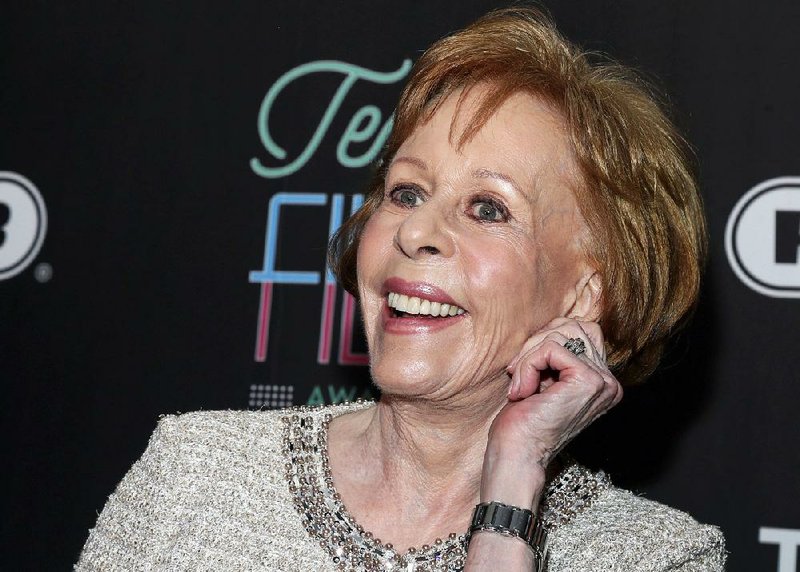Carol Burnett turned 85 on April 26, but inside she says she's still about 8. Which makes her new Netflix series a bit like playtime in the sandbox.
In A Little Help With Carol Burnett, she joins a panel of opinionated thinkers ages 5 to 9 as they help grown-ups -- including celebrities such as Lisa Kudrow, Wanda Sykes and Taraji P. Henson -- tackle tricky conundrums: how to get time alone with your spouse when your kids want all the attention, how to determine whether a man is being honest in his online dating profile.
Their answers are outlandish, whimsical, brutally honest and utterly reasonable. Burnett tosses out the occasional zinger that, mostly, goes right over her young co-stars' heads.
"The cliche is true -- out of mouths of babes," she said. "Their advice is very, very good. Some very funny. Some very heartfelt."
Seven decades into her illustrious career, with Emmy Awards for The Carol Burnett Show, a Presidential Medal of Freedom and a Mark Twain Prize for American Humor already on her mantel, Burnett will receive the inaugural Peabody career achievement award on Saturday. She talks about her role as a pioneering female comedian.
Q: You discovered young talent like Vicki Lawrence and Bernadette Peters.
A: Vicki was 18 and had no professional experience, but she wrote me that people said that she reminded them of a younger me. And we were planning to have a segment where Harvey (Korman) and I would be a married couple raising my kid sister. She was going to be in a contest called Miss Fireball of Inglewood, and I told my husband: "I've got a feeling. Let's go see this contest." She won the contest, we auditioned her and she got the role. That wouldn't happen today.
Q: Why not?
A: No network would allow us to hire somebody that raw. Now they have the sponsors, and they've got to approve everything and are too hands-on, as far as I'm concerned. And they don't trust you. That was back when they just gave you a show and said: "OK, you're the artist. Do it, and if it's successful we'll renew every year." When you think of that Saturday night lineup with All in the Family, MAS*H, Mary Tyler Moore, Bob Newhart and us, we all had free rein. The network left us alone, and that's why those shows were so good.
Q: In the 1960s, you took advantage of an option in your contract with CBS that allowed you to host 30 hours of a variety show. But network executives wanted to put you in a sitcom because they thought variety was a man's job.
A: I never thought, oh my gosh, it's a woman and dah, dah, dah. I just knew that's what I wanted to do. I wanted an actual rep company, which is what our show was, even though it had my name on it. Everybody got a chance to shine, and I learned that from The Garry Moore Show, because I remember sitting around the table, reading the script, and Garry had a funny line or two. And he looked up and said: "You know what? Give this to Carol, or give this line to Durward (Kirby). They can say it funnier than I can." The generosity -- but he was also smart because he said, "Whatever makes the show better is going to make our show successful."
Q: In your 2016 memoir, In Such Good Company, you wrote about trying to maintain ladylike qualities while making demands of your male staff.
A: Back in the day, the men -- Jackie Gleason and Sid Caesar and Milton Berle -- if they said: "Hey guys, this sketch [smells]. Get with it! What's the matter with you?" they were fine because they were guys. But if a woman did it, she would be labeled a bitch. So I tap-danced around it a lot. Like, if a sketch wasn't working, I'd call the writers down to rehearsal and I'd say: "Can you help us out here? I'm not saying this right. Maybe you could come up with a different line that would make it easier for me to get a laugh."
But now, because women are more accepted as producers, writers and stars, like Tina Fey and Amy Poehler, I would say: "Guys, this isn't working. Let's go back to the drawing board." Still, that's a nice way to say it. I can't stand confrontation. It makes me crazy.
Style on 05/13/2018
